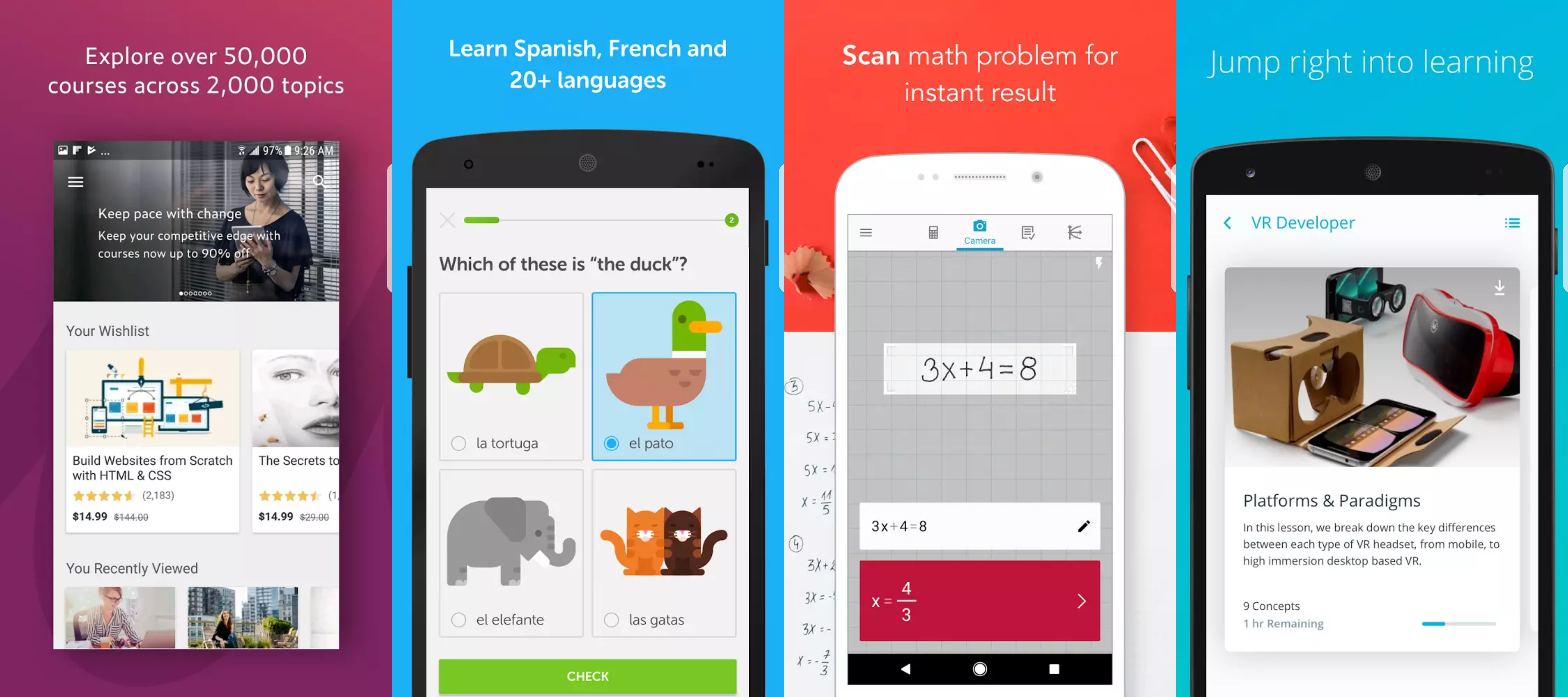 (Above) Example of education apps that can be found online. From left to right: Udemy, Duolingo, Photomath, Udacity. Screencaptured from Google Play.
(Above) Example of education apps that can be found online. From left to right: Udemy, Duolingo, Photomath, Udacity. Screencaptured from Google Play.
In the not so distant past, mobile apps were mostly popular for gaming and entertainment content.
However, due to the rapid advancement in mobile technology, apps now cover every industry including banking, retail, airlines, and ridesharing services.
Nowadays, apps are even used for education, as one can easily find various education apps such as Khan Academy, Lynda, Photomath, Udacity and Duolingo for smartphones.
While some may argue that spending too much time on the phone and being highly dependent on technology can be a bad thing, apps are opening numerous possibilities and advancement in the education sector.
According to research by the University of Warwick, mobile phone apps can revolutionise learning in developing countries where educational resources are less accessible.
The research included an e-learning app for math and science called M-Thuto – containing class notes, access to online learning materials, quizzes and textbook content – for schools in South Africa to supplement classroom teaching.
It was found that the students in the research project were able to engage better in class and also performed better, compared to the traditional textbook method.
Mobile apps are able to provide multi-modal pathways by offering video, audio and presentations where students can engage with the content thus helping them to understand and retain more information.
Besides making learning fun and interactive, mobile apps are available round the clock, which helps students to improve performance and enjoy the learning process.
And as apps are available anywhere and anytime, learning is thus not confined to the classroom.
On the other hand, there are also apps out there for students to stay updated on campus events, schedules, fees, assignment deadlines, and meetings.
Apart from being active users of apps, you could also venture to become app developers, like the 13-year-old Sarawakian who designed an app for students to view the content of their textbooks.
Perhaps more youths could be inspired by this to create apps for all sorts of services that could increase our productivity and improve our lives, as well as contribute towards the growth of Sarawak’s digital economy.
This is a weekly column by SarawakYES! – an initiative driven by Faradale Media-M Sdn Bhd and supported by Angkatan Zaman Mansang (AZAM) Sarawak – to provide advice and stories on the topics of education and careers to support Sarawakians seeking to achieve their dreams. Join us on Facebook, Twitter, Instagram and YouTube.
This article first appeared on The Borneo Post, visit this link: http://bit.ly/2mKwYt5


